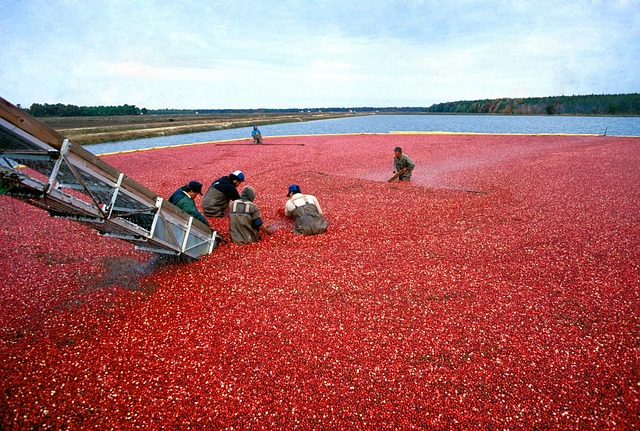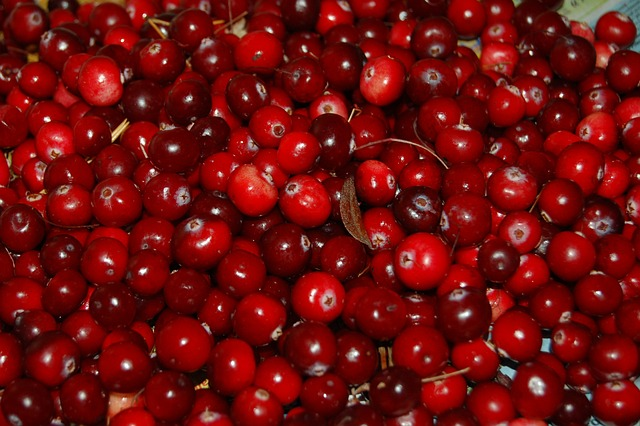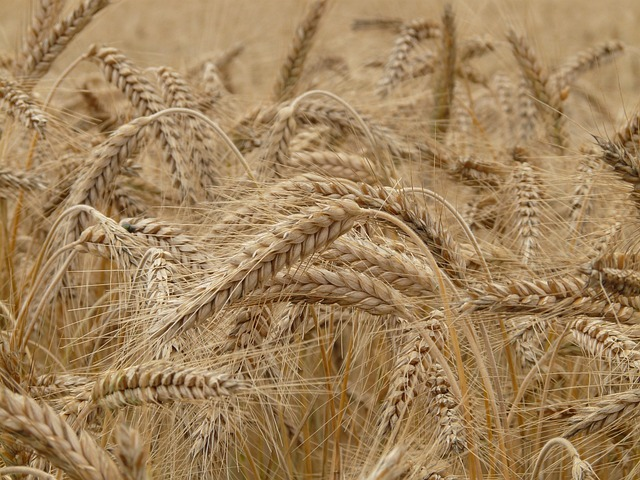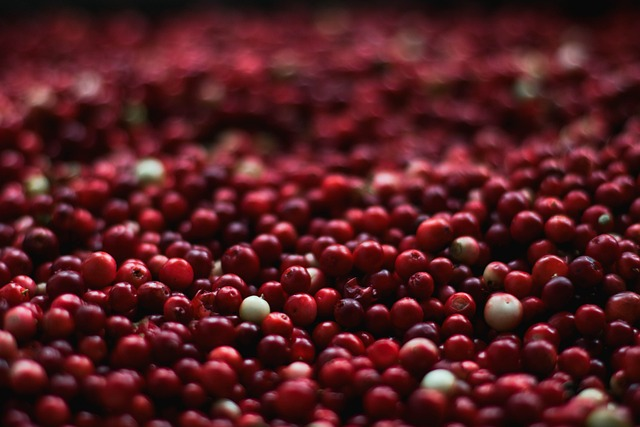
Cranberries can be enjoyed alone, in sauces and in various dishes. When pressed and passed through a juicer, cranberries produce a delicious, tart and refreshing drink. Many of us have heard of the benefits of drinking cranberry juice in preventing urinary tract infections.
However, there isn’t much discussion in popular media and in the nutrition industry about the other potential health benefits of cranberry juice. In particular, there isn’t much talk in the online health community about whether cranberry juice can help make you poop?! That might be because, based upon our investigations, consuming more cranberry juice alone isn’t likely to solve your constipation issues!
That being said, let’s dig a little deeper into how cranberry juice may, when combined with other digestive practices, be used to prevent and combat constipation and help regulate bowel movements.
Let’s Talk Constipation

When we’re talking about bowel movements, the topic of constipation usually arises. Just as a refresher, constipation is a condition in which an individual experiences a difficult time passing stool and emptying their intestines.
According to the Mayo Clinic, symptoms of constipation include:
Passing only one or two bowel movements in a given week
Hard stools
Irregular/lumpy shaped stools
Extreme pushing when trying to pass a bowel movement
Feeling as if there is a blockage when trying to pass bowel movements
Feeling as if you have not completely emptied your bowels
Needing medical assistance when trying to remove a hardened stool
Constipation can be triggered for many different reasons. However, lack of dietary fiber and dehydration are two of the common causes of constipation.
If you are experiencing symptoms of recurring or chronic constipation, it is best if you arrange to speak to a doctor.
Cranberry Juice And Constipation

To be completely frank, cranberry juice should not be used as a sole treatment when dealing with constipation. Fiber is a key nutrient that helps with constipation relief and cranberries are fairly low in fiber. According to the USDA, raw (non-juiced) cranberries have 3.6 grams of fiber (USDA, 2019, Cranberries, raw). However, when cranberries are juiced and their pulp is removed, cranberries lose most of their fiber content. The USDA suggests that cranberry juice only has 0.1 grams of fiber per 100 grams (USDA, 2019, Cranberry juice, unsweetened). This is quite a difference from the fiber content found in raw cranberries.
For example, the nutrition facts table of the popular brand Lakewood Organic Pure Cranberry Juice states that there is a total of 0 grams of fiber (HEB, n.d.) in its juice. This shows us that cranberry juice is not a good source of dietary fiber.
Why Is Fiber So Important?

Fiber is a necessary macronutrient (carbohydrate) that helps prevent constipation, balances out blood sugar levels and improves gut health. Consuming high fiber foods is critical to maintaining good digestive health and keeping the digestive tracts running smoothly. Fiber comes in two forms, soluble and insoluble and each type serves a different purpose when working in the digestive system.
Soluble Fiber:
Soluble fiber dissolves in water, helps to slow digestion and acts as a bulking agent when forming stool in the large intestine. This type of fiber works best when treating runny or watery stools. Consuming foods that are high in soluble fiber helps to absorb excess water and solidify stool. Some notable examples of soluble fiber include brussels sprouts, avocados, oatmeal, bananas and flax seeds.
Insoluble Fiber:
Insoluble fiber is the opposite soluble fiber because it does not dissolve in water. Insoluble fiber promotes the movement of stools within the digestive tract and can help loosen stools that may have hardened in the large intestine. Examples of common sources of insoluble fiber include berries, green peas, spinach and almonds.
Drinking fruit/vegetable smoothies, having more leafy greens and eating whole grain foods are all key ways to increase your fiber intake. If you are finding it hard to incorporate high fiber foods into your diet, consider incorporating fiber supplements into your routine (such as metamucil). However, always consult your doctor or physician first.
Cranberry And Overall Gut Health

As we’ve discussed, cranberry juice alone likely isn’t going to work as a one-stop solution to your constipation problems. That being said, cranberries do contain certain nutrients that help promote gut health. Those nutrients include:
Salicylic Acid:
Salicylic acid is a natural compound that is found in cranberries. Salicylic acid has been shown to fight off certain ‘bad’ bacteria found in the gut. Specifically, salicylic acid has been shown to fend off enterobacteriaceae bacteria – a bacteria that can lead to illnesses such as salmonella, shigella and E coli.
Water Content:

According to the USDA, unsweetened cranberry juice has about 87.1 grams of water per 100 grams (USDA, 2019, Cranberry juice, unsweetened). Drinking fluids that have a high water content can help promote regular bowel movements. Water helps to loosen hardened stool and helps to transport stool through the digestive system, helping to reduce constipation.
Other Cranberry Juice Health Benefits:

Cranberry juice has other health/nutrient benefits that go out of the scope of just digestive health, they are as follows:
Urinary tract infections:
Pure cranberry juice (not cranberry cocktail) is recommended when dealing with urinary tract infections. Urinary tract infections are a very common type of bladder infection that occur when bacterial build up enters the urethra. Pure cranberry juice contains two types of plant-based compounds, phenolcarboxylic acids and flavonoids. Phenolcarboxylic acids and flavonoids have been shown to prevent bacteria from growing in the digestive tract and are anti-inflammatories.
Vitamin Rich:
Cranberries are a great source of antioxidants and certain vitamins and minerals. Examples of vitamins and minerals that cranberries are high in include vitamin c, vitamin k, potassium and phosphorus.
Kidney Stone Cautionary Side Note:
Cranberries are high in the organic compound, oxalate. A diet high in oxalate can increase the chances of kidney stones. Avoid drinking cranberry juice if you suffer from kidney stones or are at risk of kidney stones.
Difference Between Cranberry Juice And Cranberry Cocktail

Some juices are labeled as “pure fruit juice” while some are labeled as “from concentrate” or “cocktail”. You may currently be standing in a grocery aisle with two bottles in your hand wondering the differences between all of these terms! The main difference between the two is that cranberry juice does not contain any added sugars (beyond those contained within the fruits used), whereas cranberry cocktail contains sugars that are refined and added to the drink.
What is cranberry juice
Cranberry juice should be labeled as ‘100% juice’. This can be hard to find because a juice made up exclusively of pressed cranberries would produce a very tart flavor that would not be enjoyable to many. Most cranberry juice is mixed with other juices, such as apple juice and grape juice. That being said, pure ‘100%’ cranberry juice can be found at most organic health stores.
What is cranberry cocktail
Cranberry cocktail, on the other hand, is made up exclusively of cranberry juice, but is also mixed with added refined sugars, such as high fructose corn syrup.
Which one is healthier?
Surprisingly, cranberry cocktail and cranberry juice contain a similar amount of sugar per serving. However, given that cranberry cocktail derives much of its sugar from additional, refined sugars which are mixed in, it is generally advisable to stick with pure cranberry juice.
Final Thoughts

In short, it would not be advisable to rely exclusively on drinking cranberry juice daily for providing relief to your constipation issues. Cranberry juice is not particularly high in fiber and is likely no more effective than drinking water in hydrating your body. Cranberry juice also is not high in sorbitol (a carbohydrate type of sugar alcohol), meaning that it does not have the same laxative effect found in other fruit juices such as prune juice. That being said, cranberry juice does have a high water content – something which can be helpful in aiding constipation. But remember, nothing is better than plain water for hydration! So even if you love cranberry juice, just remember to drink cranberry juice along with other good digestive health foods and beverages to help relieve constipation!
References:
HEB. (n.d). Lakewood Organic Pure Cranberry Juice. HEB. https://www.heb.com/product-detail/lakewood-organic-pure-cranberry-juice/1036019
Mayo Clinic. (2021, August). Constipation. Mayo Clinic. https://www.mayoclinic.org/diseases-conditions/constipation/symptoms-causes/syc-20354253
USDA. (2019, April). Cranberry juice, unsweetened. USDA Food Data Central. https://fdc.nal.usda.gov/fdc-app.html#/food-details/168117/nutrients
USDA. (2019, April). Cranberries, raw. USDA Food Data Central. https://fdc.nal.usda.gov/fdc-app.html#/food-details/171722/nutrients
Leave a Reply